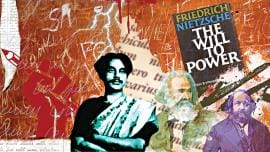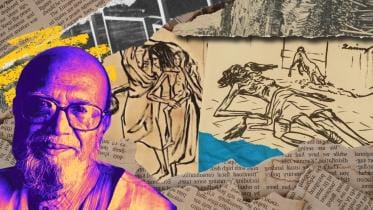ESSAY / Symphonic overtures of Nietzsche-Marx-Bakunin in Nazrul’s ‘Bidrohi’
10 January 2026, 00:00 AM
Books & Literature
ESSAY / On mothers, monsters and myths: A look at the Mary before the Mary
5 December 2025, 18:57 PM
Books & Literature
ESSAY / Lessons from our literary girls: Why freedom framed as favour is no freedom at all
3 December 2025, 18:00 PM
Books & Literature
ESSAY / Lessons from our literary girls: Why freedom framed as favour is no freedom at all
26 November 2025, 11:18 AM
Books & Literature
ESSAY / When old patriarchies wear new faces
25 November 2025, 12:57 PM
Books & Literature
ESSAY / Taylor Swift talks back to Shakespeare
19 November 2025, 18:00 PM
Books & Literature
ESSAY / Two awakenings: Reading ‘Dhorai Charita Manas’ and ‘Things Fall Apart’
14 November 2025, 20:03 PM
Books & Literature
ESSAY / Discourse around the Heathcliff casting
2 November 2025, 12:00 PM
Books & Literature
ESSAY / Everyone is migrating to Substack, and you should too
28 October 2025, 13:24 PM
Books & Literature
ESSAY / Leonard Cohen: Verses of mercy and turmoil
22 October 2025, 13:45 PM
Books & Literature
Sonnet of the riverbank: Remembering Al Mahmud, the poet
Some poets arrive like rain on parched soil—needing no defense, only recognition. Al Mahmud (1936–2019) was one of them. And yet, in the usual crookedness of history, we have found ourselves having to defend what should already have been canonised. There was a time—not long ago—when his name uns
29 August 2025, 19:49 PM










